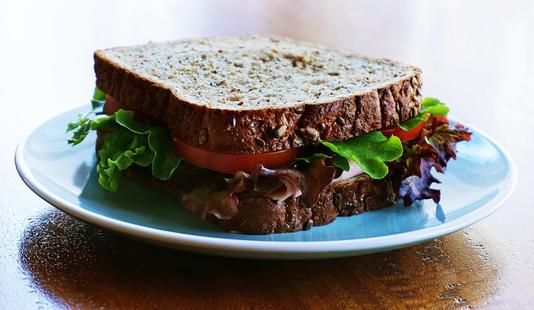
Sandwich Scheduling: a look at Ruby's Array cycle method
- By Tim Ash
- 28 September
How Ruby can help you schedule your sandwiches
A short introduction to using default parameters in Ruby.

I’m intending this post to be a gentle introduction to default parameters in Ruby. I’ll cover constants, expressions, and method calls in this context, and hopefully show how their use can make your code a bit cleaner.
Let’s pretend that we’ve been asked to write some Ruby code to calculate the price of a fish, depending on its species, weight (in kg) and age (in years). We could start with a simple Ruby method:
which could be called using:
(The actual details of the price calculation don’t concern us, so I’ve skipped them for brevity.)
Now let’s assume that if we don’t know the age of a fish, we perform the price calculation on the basis that the fish is one year old. We can do this with a default parameter:
which will allow to call our method with:
(Note that we can still specify the age if we want to.)
Now, let’s assume that the age of a fish can, in a lot of cases be calculated by dividing its weight by 5, and if we don’t supply an explicit age, we want to use this method to obtain the age. We can do this by simply replacing our fixed default value with an expression:
Going further, it’s likely that the default method for calculating the age of a fish depends on its species as well as its weight, so we can set up another method:
and use this as the default value when calculating the price:
The alternative to this would be to default the age to a special fixed value, such as nil or zero, then check in the price_of_fish method for this special value, and call the default_age_of_fish method if this value has been passed in. I feel this approach to be slightly untidy, and it doesn’t explicitly separate the logic of the price calculation and the age calculation.
A word of warning about something that has caught me out in the past. Passing an explicit nil value for a parameter with a default value is not the same thing as not passing that parameter at all and relying on the default value. Using our example method above, calling
will use the default value for the age parameter, but
will ignore the default value and use nil instead
As always, I’d be interested to hear your views on the price of fish, and default parameters - why not leave a comment below?

How Ruby can help you schedule your sandwiches

Another way Ruby can help you keep track of your lockdown exercise routine

How Ruby can help you keep track of your lockdown exercise routine

How Ruby can help you mix the drinks and bust some moves at the charity ball

You won't believe what happens when all the animals run away from the zoo.

Home, home on the Range, where the Ewoks and the Wookies play